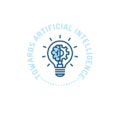How is AI helping healthcare? Some examples you should know!
If you read any of our blogs till date, then you know that we are AI enthusiasts and admirers of all the benefits of AI in human industries. One that we want to focus on today is the healthcare and medicine industry. We will also look into a few real-life examples of AI contributions and how.
Reducing errors and misdiagnosis
In the US, according to the University of California, San Francisco, 10% of the total deaths came as a result of misdiagnosing or medical errors. Artificial intelligence has proven to be more accurate in predictions and diagnosis than most medical doctors. For example, an investigation from Jama Network has proven that AI models that use algorithms and deep learning have diagnosed breast cancer at a higher rate, compared to 11 pathologists who were part of the study.
Furthermore, we will present 6 examples of how Artificial intelligence has contributed in avoiding and reducing errors as well as saving lives:
More accurate cancer diagnosis
Location: Cambridge, Massachusetts
Pathology Transformed is investing in machine-learning technology that assists pathologists in their diagnoses, with the aim of increasing the accuracy of their diagnosis. The company’s current goal is to reduce the errors, as well as improve the individualized cancer medical treatment. The company has worked with serious foundations such as Bill and Melinda Gates in order to share their technology with the healthcare industry.
Intelligent symptom checking
Location: Boston, Massachusetts
Buoy Health is an AI-based system that checks symptoms, diagnoses, and treats illnesses using algorithms. The way it works is that patients tell their symptoms to a chatbot – which further guides the patients into the correct care. Many hospitals and healthcare institutions have introduced Buoy Health, such as Harvard Medical School.
Actionable insights from deep learning
Location: San Francisco, California
Etnilic – which is ranked the 5th smartest AI company in the world, streamlines diagnoses of radiology by using deep learning medical tools. These tools enable doctors to gain better information on a patient’s real-time condition, by analyzing data that isn’t structured (EKGs, blood tests, medical history, radiology images and genomics).
Early stage cancer identification
Location: San Francisco, California
Freenome deployed AI at its general screens, diagnostics and blood tests so that they can detect cancer at its earliest stages and develop new treatments.
Early blood disease identification
Location: Boston, Massachusetts
Beth Israel Deaconess Medical Center which is Harvard’s University teaching hospital is using AI to identify deadly blood diseases in very early stages. AI is being used by injecting microscopes in blood samples to detect harmful bacteria at a faster rate and an earlier stage compared to manual scanning. Different scientists gather 25,000 images of blood samples to teach AI how to detect these bacterias. Today, these microscopes know how to detect and predict harmful bacteria, with a 95% rate of accuracy.
AI assistance
Location: Shefayim, Israel
Zebra Medical Vision helps radiologists with AI assistance. This assistant studies different imaging scans and analyzes them to make findings. These findings are further used by radiologists in detecting the diagnosis.
